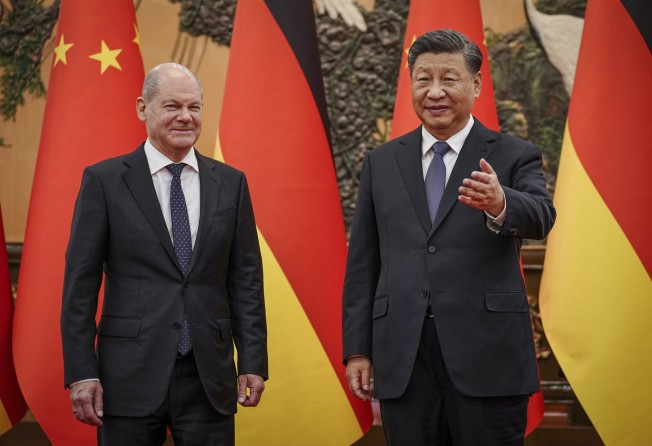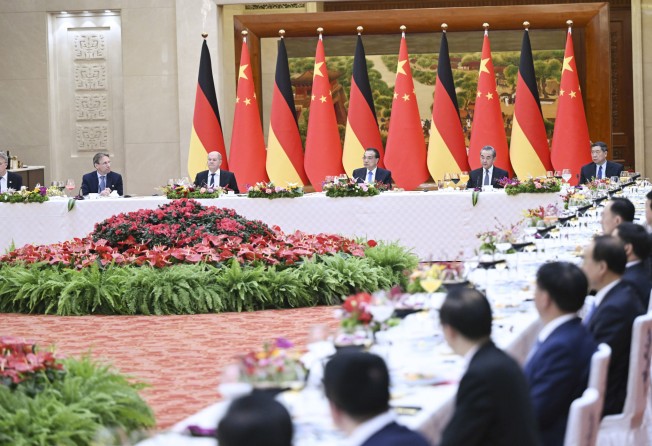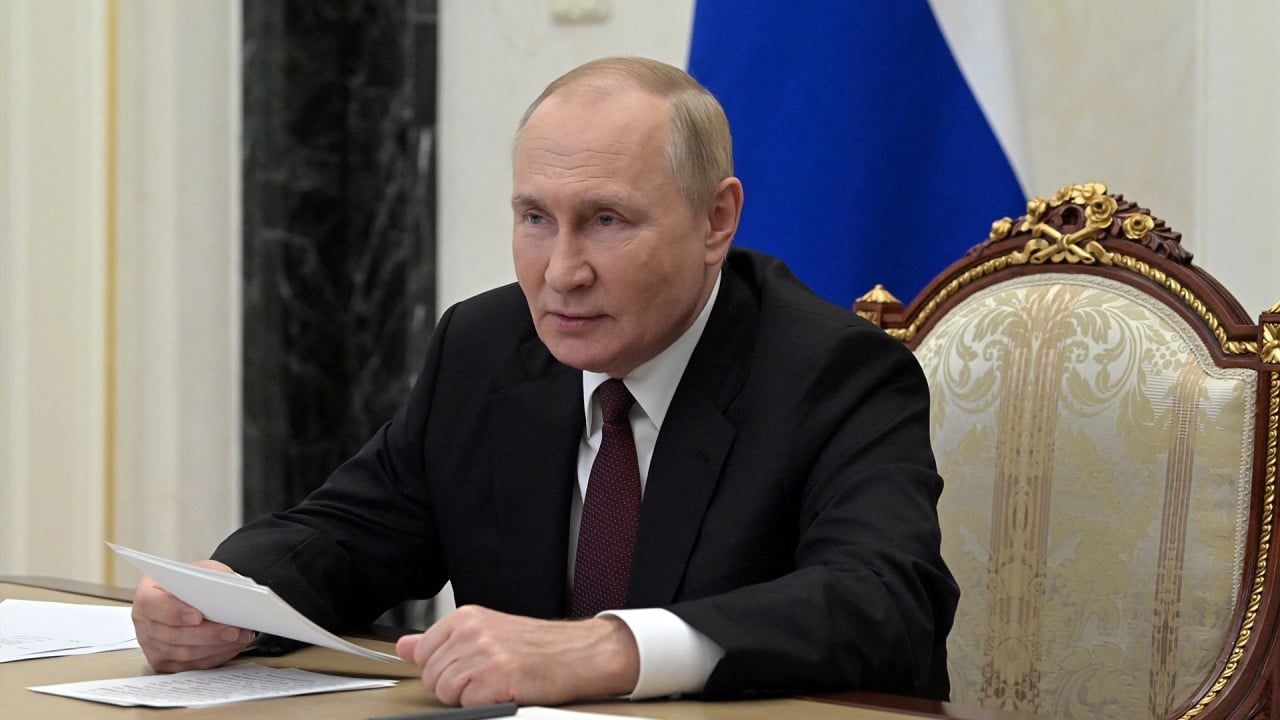
Germany’s Scholz scored some major wins during his trip to Beijing, but his own government doesn’t think so
- The German chancellor’s meeting with Xi Jinping charted a path for limiting dependency on China without decoupling
- Unconvinced, however, are Scholz’s own coalition members, who want a complete restructuring of Sino-German relations

Criticism of German Chancellor Olaf Scholz’s visit to Beijing has been widespread. Objectively speaking, the trip was a success for both sides. However, Scholz continues to face opposition from within, significantly impacting his China policy moving forward.
The leader of the Green Party, Ricarda Lang, called for a reduction in German dependence on China and a definition of areas “from which we keep China out”, while the Liberal Democrats (FDP) insisted on action at the EU level. “We need new regulations in the foreign trade law,” demanded the party’s vice-chair, Johannes Vogel. “We need a China strategy together with other democracies,” he urged.
What sounds like the usual political rhetoric emanating from Berlin is worrisome for Scholz as these demands were not made by the opposition but by his two coalition partners.
It mirrors a semi-consensus in German politics whereby many now consider the economic partnership with China a mistake, and the concept of “change through trade” a failure. Some are asking whether the status quo should be revised.
On the back of these political statements, the public’s view of China also seems to have changed. According to an opinion poll by research institute Infratest dimap, 49 per cent of Germans want to scale back relations with China.
The immense background noise notwithstanding, President Xi Jinping and Scholz spoke out in favour of closer cooperation at their meeting in Beijing last Friday.

Scholz had to manage a tightrope act during his 11-hour-long stint in Beijing, championing German-Sino relations while addressing concerns. And Scholz left no doubt that he rejects Xi’s policies in various areas, whether concerning Taiwan, human rights or minorities.
But neither Taiwan nor the human rights situation was a pivotal point. Rather, two other issues were at the forefront, and how these were handled can undoubtedly be considered a positive sign.
First, the Chinese side emphasised that the Sino-Russia friendship is not “without limits” after all. Premier Li Keqiang called for an “immediate end” to the war. “We can no longer afford any further escalation,” Li said, lamenting the effects of the war on global energy supplies and the grain trade.
President Xi was also firm when he stated that a nuclear crisis must be avoided in Eurasia. The parties concerned would have to “be reasonable, exercise restraint and create conditions for negotiations to resume”. China “supports Germany and Europe to facilitate peace talks and build a sustainable security architecture in Europe,” Xi said.
Even though neither Xi nor Li explicitly named Russia as the culprit, these statements, during a high-profile meeting with the EU’s de facto leader and chancellor of the world’s fourth biggest economy, are a success for Scholz, Europe and, indeed, Ukraine.
Russia’s war has turned into an abysmal quagmire of failure, and defeat seems a question of when, not if. It has led the regime to threaten to use nuclear weapons. However, one must not forget that Russia is no longer a superpower at this stage; it is a gas station with nukes. Xi remains Putin’s most powerful ally and can influence Russia’s war in Ukraine like no other foreign leader. His resounding “no” to any nuclear attacks will have been heard in the Kremlin.
Second, Scholz’s visit to Beijing will re-strengthen economic relations and create further prosperity for both sides.
Similar to his predecessor Angela Merkel, Scholz was accompanied by a business delegation – a who’s who of German enterprises, such as Bayer, Volkswagen, BMW, BASF, Siemens, Merck, Adidas, BMW, Deutsche Bank and BioNTech.

For the companies, the trip was a pivotal sign that Scholz is not inclined to “decouple” Germany from China, even though the chancellor expressed his desire to become more independent, particularly regarding raw materials such as lithium, or semiconductors.
Little is wrong with this plan per se. No one desires dependency. After all, it was only a few months ago that Germany found itself completely exposed following the Russian invasion of Ukraine, after years of wooing Moscow to enjoy cheap Russian energy.
However, the choice here is not a binary one. Between decoupling and dependency is plenty of room for cooperation and economic potential that both sides can benefit from, as the last few decades have impressively shown.
From China’s point of view, too, the visit ought to be considered a success. Chinese media emphasised Scholz’s commitment to maintaining close bilateral relations. Moreover, Scholz was the first European head of government to travel to China since the pandemic began.
Just days after the start of Xi’s new term in office, Scholz not only legitimised the Chinese president with his visit but provided China with certainty that Merkel’s departure and the rather emotionally-laden rhetoric in Berlin did not mark the end of Sino-German relations. Scholz’s visit to Beijing, despite all the backlash, showed the chancellor’s willingness to continue German pragmatism, which has benefited Berlin and Beijing alike.
However, with all this said, the role of a German chancellor is different from that of a president. While Scholz possesses “Richtlinienkompetenz”, that is, the authority to determine policy guidelines, his China policy will significantly depend on whether he can appease his coalition partners – partners who have displayed a proclivity to alter the Sino-German status quo.
Thomas O. Falk is a UK-based independent journalist and political analyst
